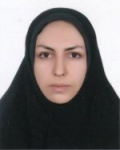| نویسندگان | رضا شکوهی-صلاح عزیزی-علی پورمحمدی-فاطمه پناهی |
|---|
| تاریخ انتشار | 2015-6-01 |
|---|
| نوع نشریه | الکترونیکی |
|---|
چکیده مقاله
Pentachlorophenol (PCP) is the organic compound that has been widely used in different industries. The Pollution
of water by organic pollutants such as PCP is a worldwide environmental problem due to their persistence and
toxicity. In this study, nonviable Phanerochaete chrysosporium fungus biomass was applied for PCP biosorption
from aqueous solution. In order to adsorb PCP, the modified Phanerochaete Chrysosporium biomass with NaOH
was used. The influence of various experimental parameters such as initial PCP concentration, solution pH and
contact time on the biosorption efficiency was investigated. Kinetic studies were conducted at pH 5, 250 ml of
different concentrations of PCP solution, 0.5 g of biomass and various contact time. The equilibrium time was found
to be 2 h for fungus biomass to complete saturation. The correlation of pH and initial concentration in PCP
biosorption was quite significant (P
<0.01). Kinetic studies represented the adsorption process followed by
pseudo second-order kinetic model. The maximum monolayer adsorption capacity of P. chrysosporium fungus for
PCP was found to be 12.13 mg/g according to Langmuir isotherm. Maximum adsorption was obtained at pH of 3.
According to the obtained results, P. chrysosporium fungus appears to be an efficient biosorbent in PCP removal
from aqueous solution in low pH conditions.
